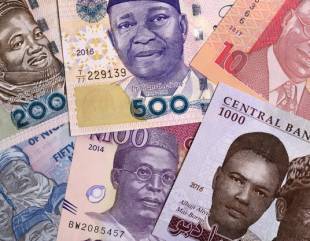Devaluation refers to a deliberate reduction in the value of a nation’s currency relative to another country’s currency. The decision to devalue a currency will lower the purchasing power of such currency especially in international transactions. Following the data obtained on the website of FMDQ OTC Securities Exchange on the CBN official rate, on Tuesday showed a 5.54% change from N360/$ signalling that the Central Bank of Nigeria has officially devalued naira to exchange to the dollar at N381/$ on the Importer & Exporter window. Also, In March, the CBN had adjusted the official exchange rate to N360/$ from N307/$.
The devaluation can be attributed to the pandemic, COVID-19 that is ravaging round the world, unstable foreign reserve, and a reduction in oil prices which has in one way or the other slowed down economic growth. With this, the monetary policymaker, CBN has been unable to maintain the value of Naira and hence, devalued it.
A lot of people are of the thoughts that naira devaluation affects just those who trade in the international market leaving traders in the domestic/local market alone. It is quite unfortunate that this is not so as there is a transmission mechanism that will make this issue rotate around all sector of the economy affecting both you and I if we don’t take up the step to protect ourselves, we might suffer for it on the short run. In its first instance, devaluation of a nation’s currency could lead to a higher inflation rate. Considering the increasing rate of inflation in Nigeria, it is important for every stakeholder in the economy to find measures to mitigate the risk to an extent.
The implication of a devaluation is that goods exported will become cheaper while goods exported become quite expensive. This could sound like a disadvantage for the time being but there might be little or no effect in the short term but as time goes by, the goods exported will be on high demand, following demand theory (lower the price, higher the demand). With this, there will be an increase in demand for homemade goods. Individuals and young entrepreneurs can seize this opportunity to venture into exports of goods and services. While they make their gain, the economy becomes better off as the value of our Naira bounces back.
One of the best ways to protect yourself against Naira devaluation is to venture into investments like real estate, Eurobonds, stocks. For example, the value of land rises up even as inflation rises, as the naira gets devalued, the land could appreciate. However, the best investment you can make to prevent yourself against devaluation is to venture into investments abroad. Never let your savings lie down in that bank account. Let the money work for you.
24/7 UPDATES ON OUR WHATSAPP TV, JOIN NOW
Follow Us on Facebook – @2709Updates; Instagram – @2709Updates; X – @2709Updates;
Discover more from 2709 Updates
Subscribe to get the latest posts sent to your email.



